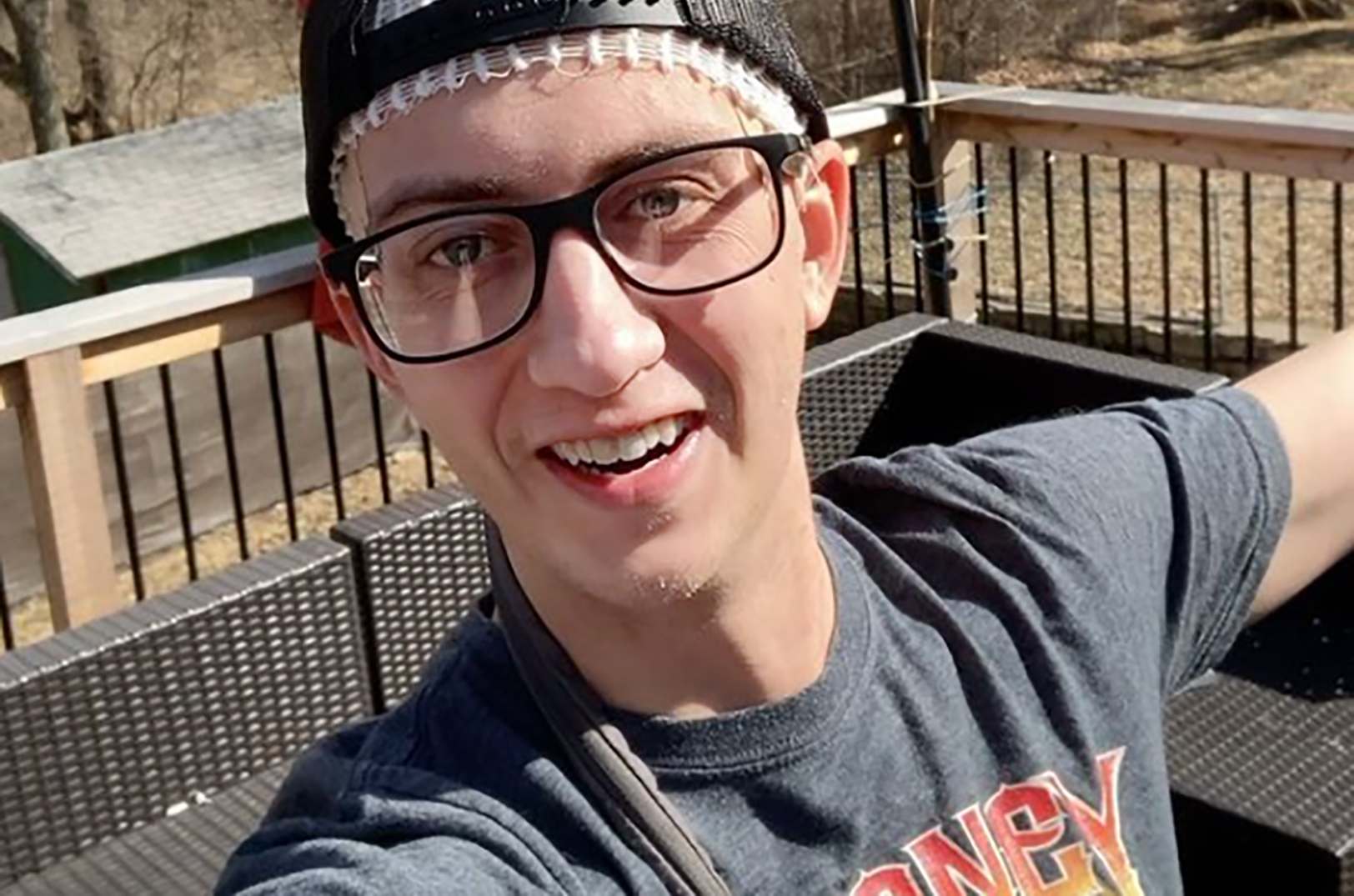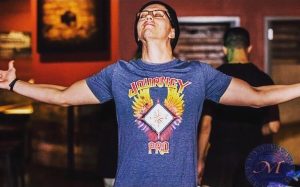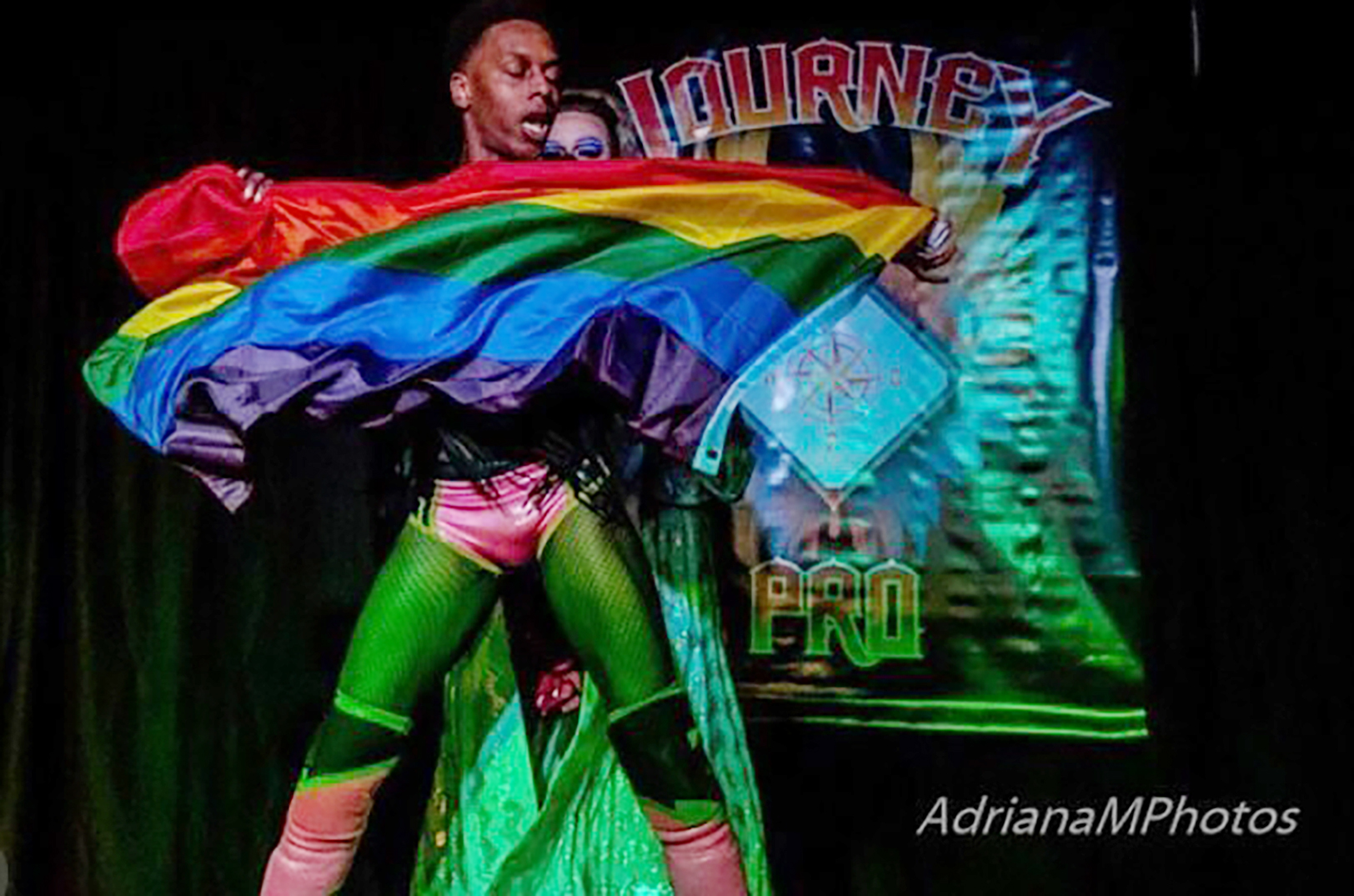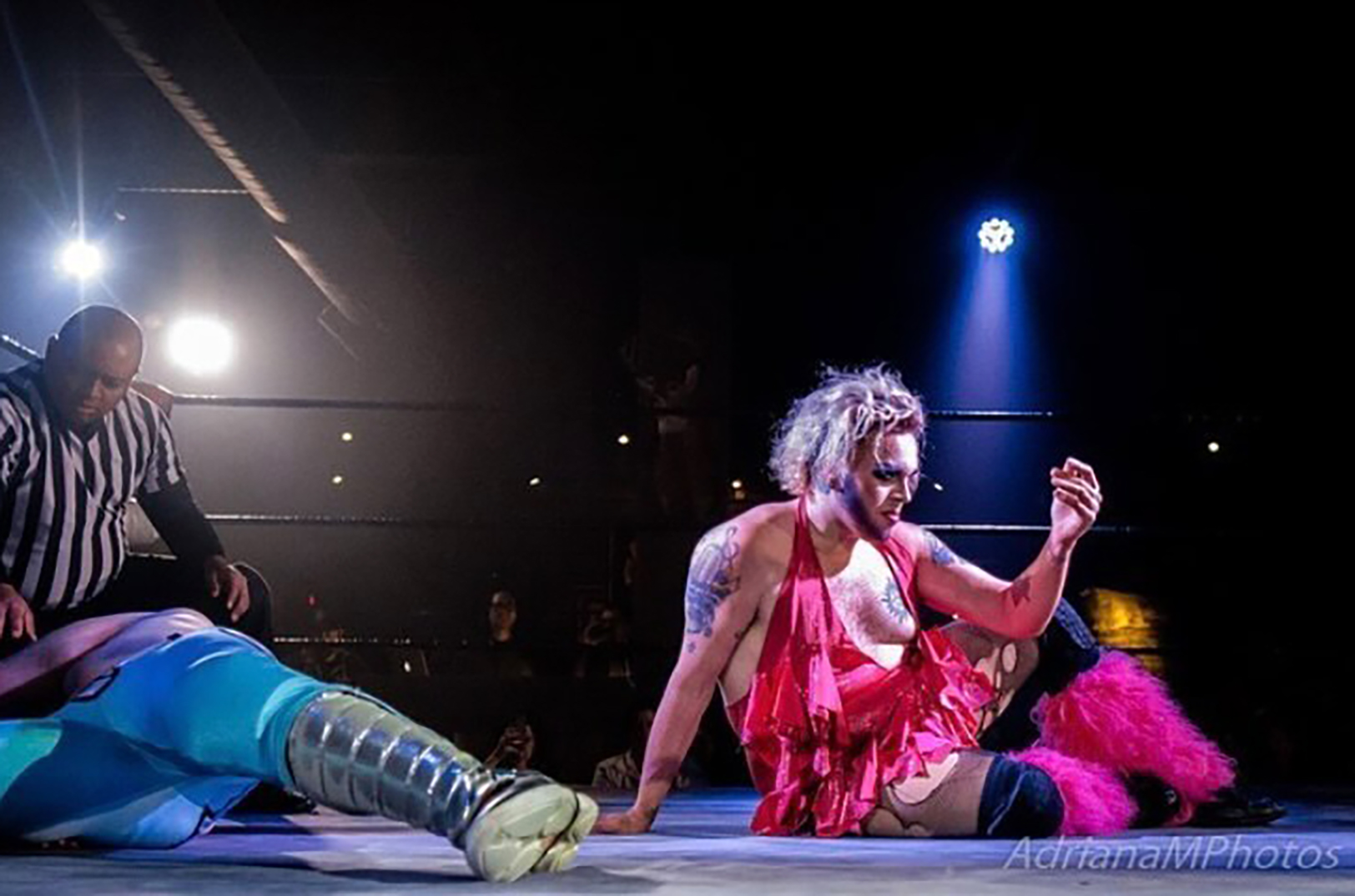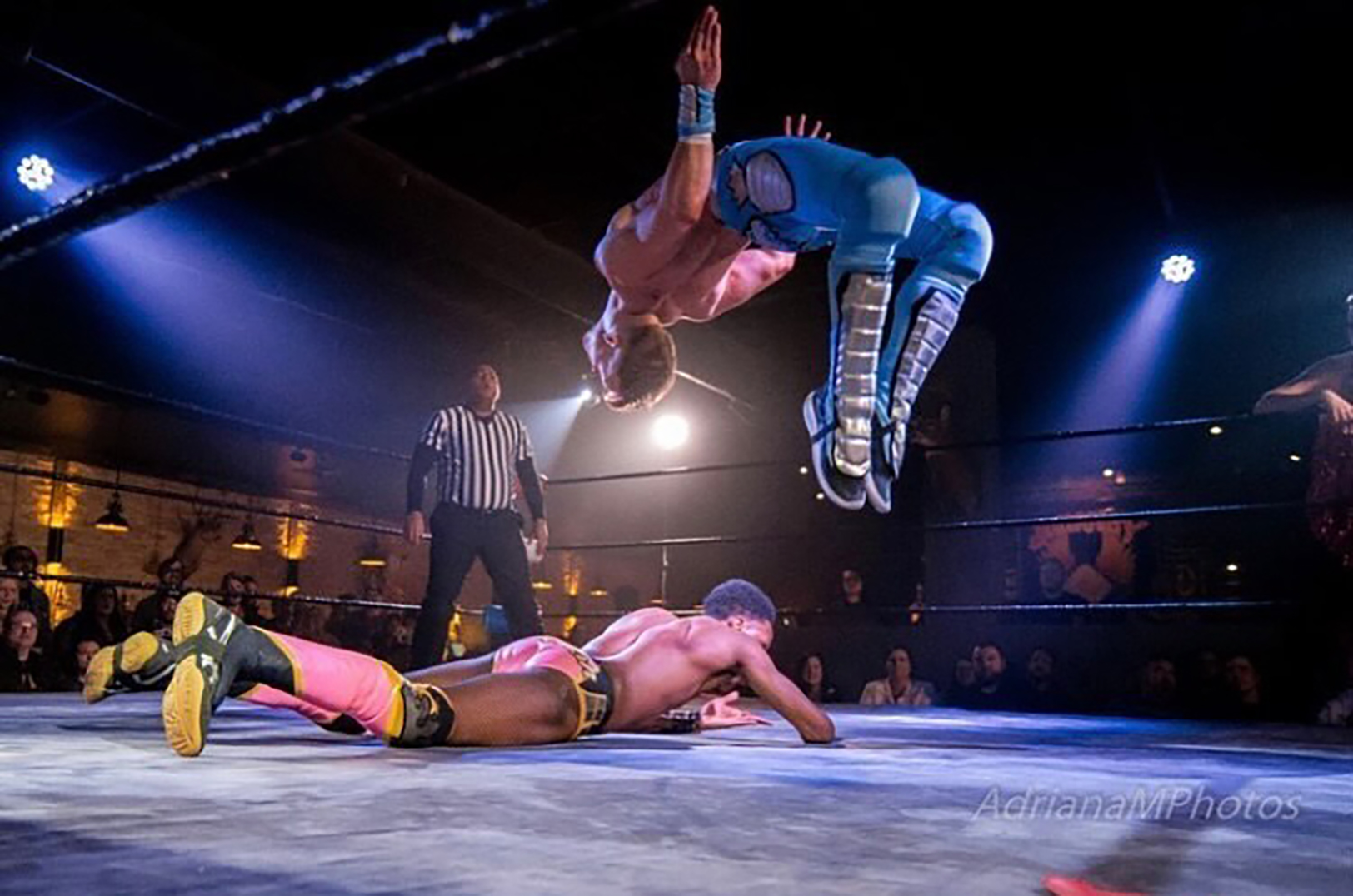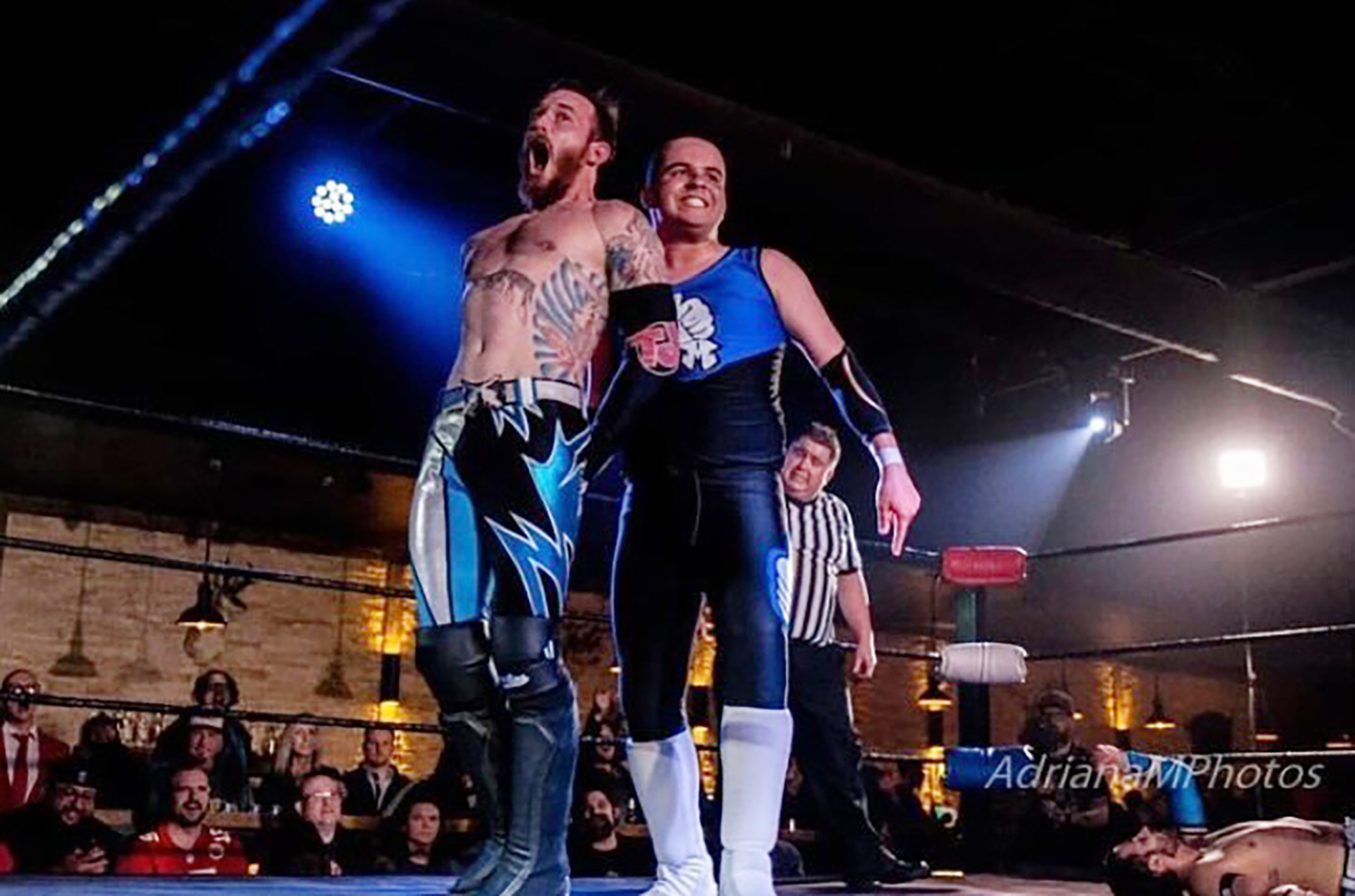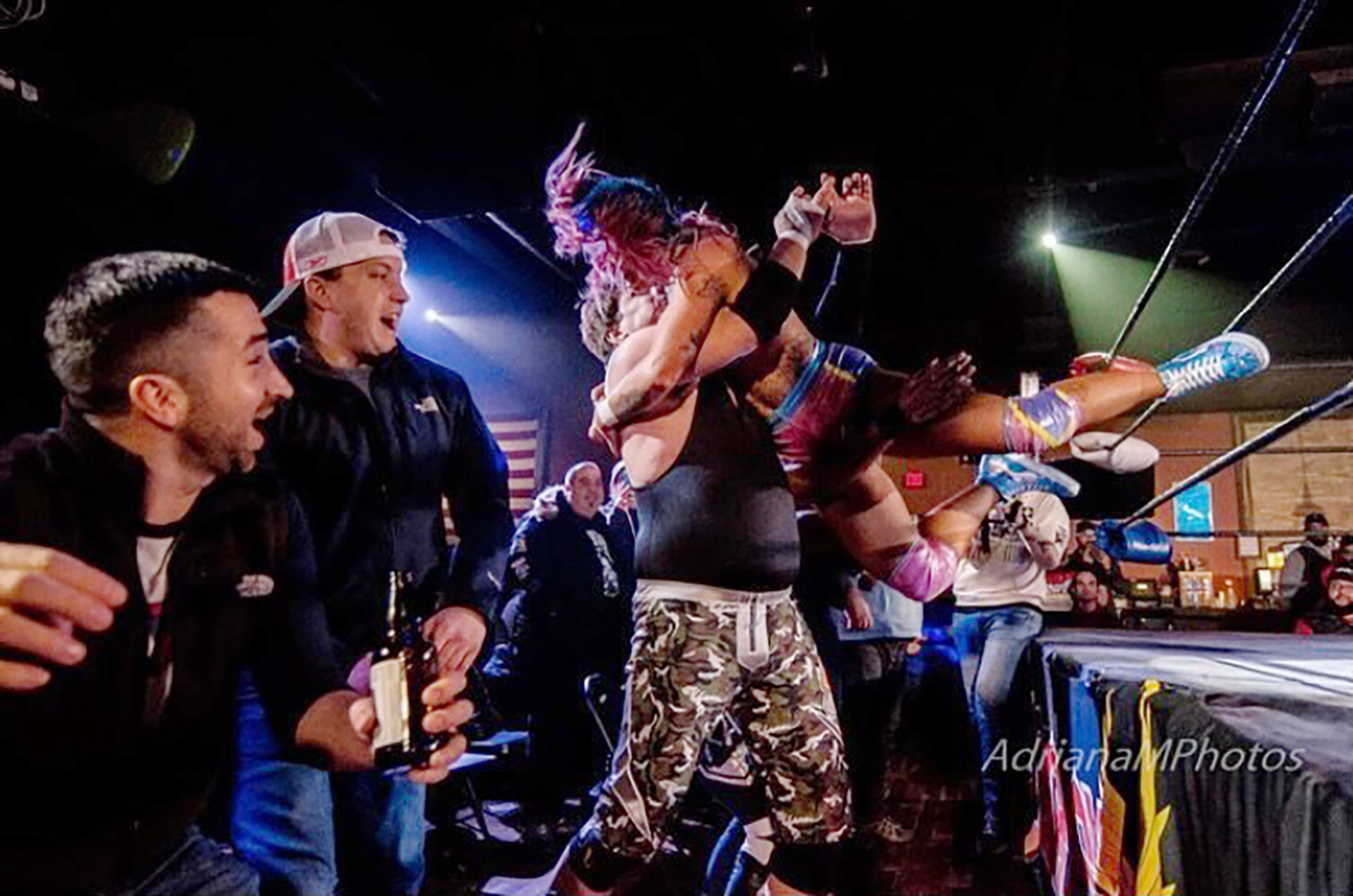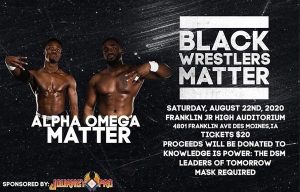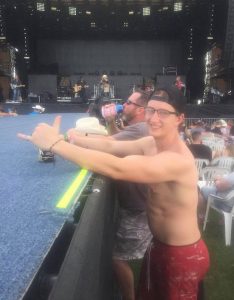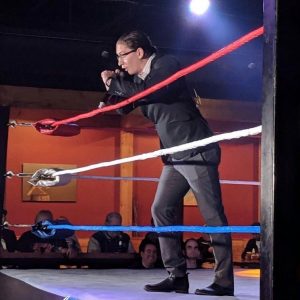A new era has entered the ring as an entrepreneur fights to bring inclusivity to Kansas City’s legacy-rich professional wrestling community — in the midst of an all-out brawl in his own battle against Stage 4 brain cancer.
“Everyone is welcome at our shows,” said DJ Stewart, owner of Journey Pro KC, describing the wrestling and event company’s commitment to creating a welcoming-to-all atmosphere in a traditionally exclusive, macho-minded industry.
“The NWA (National Wrestling Alliance) ran through Kansas City with the likes of Ric Flair, Dusty Rhodes. Phenomenal talent made its way throughout the city in the past and some unbelievable talent in recent years as well,” he said.
“But professional wrestling has a mindset that people are sort of stuck in. It has an old school feel.”
From Stewart’s ringside view, an “old school” mindset also runs through Kansas City’s wrestling scene — a community that’s long thrived, producing big league, local talent that includes the likes of Bob Orton and Bob Orton Jr. — legends of the WWE (World Wrestling Entertainment) and grandfather and father of modern-day WWE star, Randy Orton.
“We have roster members that are LGBTQ, we have drag events — we do all kinds of things, and that is not your stereotypical professional wrestling company,” he said, detailing the company’s commitment to fostering inclusive environments that break societal norms for wrestlers.
To date, Journey Pro has sent more than 10 of its wrestlers to organizations that include the WWE, New Japan, and the AEW (All Elite Wrestling), solidifying itself as a rising star maker — a title it hopes to hold onto as it turns its focus toward education when the pandemic passes.
Click here to learn more about Journey Pro and it’s work to build an inclusive community.
“There is an incredible, incredible talent pool in Kansas City and there’s not enough places for them to hone their skills,” he said of aspirations to launch a school that helps aspiring professional wrestlers improve everything from moves to stage presence.
“I want to be able to give them a place to come and to be whoever they are and learn something truly awesome — and have a hell of a good time.”
No skating through unscathed
Stewart’s success is serendipitous, the result of unexpected circumstances that altered his plans for life and showed him a new path. That pivot allowed him to celebrate a variety of people and experiences — including work to support the Black Lives Matter movement and wrestlers of color.
“I was a competitive skateboarder my whole life,” the athlete and and Kansas sports lover recalled of the events that led him to try his hand at professional wrestling. “I got hurt pretty bad some years back and needed something to replace the competitiveness with.”
Just as Stewart got settled, chasing a childhood dream, he was hit with more unexpected news.
“I had a tumor in my knee that was called leiomyosarcoma, which is a muscle cancer. I wasn’t really able to keep wrestling … but I wasn’t really ready to be done.”
At the same time, a local wrestling company folded, lifting the ropes on entrepreneurial opportunities for Stewart who tagged in several friends to found Journey Pro in 2019.
“We said, ‘Let’s just do it,’ but in a different way.”
Six months into operations, an additional opponent found its way onto Stewart’s roster: brain cancer doctors told him would be terminal.
“That was 20 months ago. They gave me 18 months to live. I feel great, I’m kicking the shit out of it, but you know, that put a damper on things,” he said of the reality he’s faced and ways it called into question whether he could continue to run Journey Pro.
“I refused [to give up.] I honestly used it as motivation to keep fighting, to stay strong, to live my life normally — like I’m not sick.”
Click here to read more about DJ Stewart’s fight or to donate to a GoFundMe campaign created on his behalf.
View this post on Instagram
A space to be yourself
The support of Kansas City’s wrestling community offered further fuel to push forward, bringing full circle Stewart’s commitment to inclusivity and kindness.
“I can’t believe all the love that they have shown my way and to my family. That sort of thing is truly something special.”
And it’s the reason Stewart continues his work, despite additional punches thrown by the COVID-19 pandemic.
“We were putting 400 or 500 people in an event space. Obviously that doesn’t work — especially in early COVID times,” he said.
“I want to build something in my city. I want to show the professional wrestling world — and, honestly, the rest of the world — not only that professional wrestling is cooler than you think, but that Kansas City is the place for it to be.”
It’s also a place for people to be themselves, Stewart said.
“I’ve gotten handwritten letters from fans that I hold onto to this day, that will bring a tear to my eye, about them feeling welcome in a place that they didn’t think they would be,” he said, noting such a reception is the biggest gift he could receive as a business owner.
“I want to show that this is a place where you can do anything, because I love this city. I love this scene, I love these people.”




